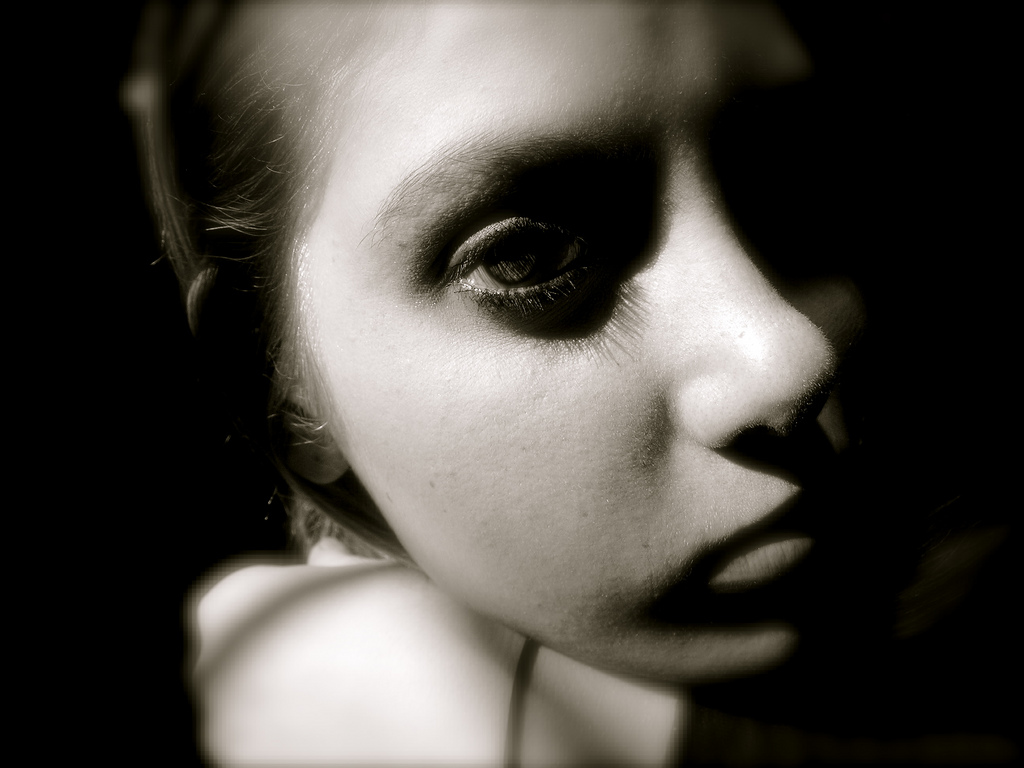 Do you feel insecure or suffer from persistent self-doubt? Are your feelings about yourself dependent on how people respond to you? Do you ever feel confused about who you are? Do you feel sure about yourself one day, but then unsure the next day? Perhaps you sometimes look in the mirror and ask yourself, “Who is that person?” You may find it difficult to describe yourself to others or stand up for yourself in relationships. Do you expect others to reassure and affirm you? If so, you may be suffering from an over reliance on your reflected sense of self.
Do you feel insecure or suffer from persistent self-doubt? Are your feelings about yourself dependent on how people respond to you? Do you ever feel confused about who you are? Do you feel sure about yourself one day, but then unsure the next day? Perhaps you sometimes look in the mirror and ask yourself, “Who is that person?” You may find it difficult to describe yourself to others or stand up for yourself in relationships. Do you expect others to reassure and affirm you? If so, you may be suffering from an over reliance on your reflected sense of self.
This is the first article in a two-part series in which I explore the concept of the reflected sense of self. In this article, I explain the concept of the reflected self and show how it functions. In the following article, I explore how we need to reclaim power over our lives in order to discover the true identity that God has given us.
The Reflected Sense of Self: A Borrowed Self-image
Dr. David Schnarch (2009) defines “the reflected sense of self” as one which is dependent upon the feedback of others. The reflected self occurs when we allow how people respond to us to determine our identity and worth. It is as though other people are a mirror that reflects back what we are to believe about ourselves. So, for example, if your childhood was characterized by criticism and rejection by those closest to you, you may have developed a negative sense of self. You may have adopted the belief that you are stupid and worthless. Alternatively, you may have felt assertive and talented because your family and friends always praised you for your accomplishments. In sum, the reflected self borrows their identity from the people around them.
Schnarch defines borrowed functioning as “seeing yourself through the eyes of people who are important to you. You internalize how others see you and treat you as indicators of who you are” (p. 44). Depending on our moments of interaction with others, we can borrow a positive or negative self. For example, you feel great about yourself when your spouse or friend compliments you, but you feel unworthy when they are angry or distant. People with a reflected self depend on others to supply them with a positive reflection of themselves. But when we rely on others for a positive sense of self, we become emotionally fused with them. Schnarch defines emotional fusion as basically depending on others to regulate your emotions.
Emotional fusion is like saying, “I need you to feel good about me, so I can feel good about me. I can’t handle you being upset because that means I am bad.”
The Search for the Self
 Imagine yourself as a scanner, examining people’s reactions and behaviors towards you. You search for signs of approval and acceptance, or of rejection and disapproval. You analyze body language, tone of voice, words, behaviors, etc. You scan your friend and notice how she becomes irritated at you every time you make mistakes, and so you assume you are stupid. You may scan yourself to ensure that you portray the “right image” of yourself. For example, you try to act smart and flawless in front of your coworker who has a PhD because you notice her judgmental facial expressions. Your reflected self develops a hypersensitivity to any negative feedback you pick up, even if it has nothing to do with you. For you have already determined that what you see means that something is wrong about you personally. We find what we set out to look for—and this is usually negative feedback because the reflected self is insecure.
Imagine yourself as a scanner, examining people’s reactions and behaviors towards you. You search for signs of approval and acceptance, or of rejection and disapproval. You analyze body language, tone of voice, words, behaviors, etc. You scan your friend and notice how she becomes irritated at you every time you make mistakes, and so you assume you are stupid. You may scan yourself to ensure that you portray the “right image” of yourself. For example, you try to act smart and flawless in front of your coworker who has a PhD because you notice her judgmental facial expressions. Your reflected self develops a hypersensitivity to any negative feedback you pick up, even if it has nothing to do with you. For you have already determined that what you see means that something is wrong about you personally. We find what we set out to look for—and this is usually negative feedback because the reflected self is insecure.
The Reflected Self Feels Controlled
People with a reflected self allow others to control them in order to feel accepted and to find personal worth. For example, you may have told your friend that you can’t go to the movie theater with her because you have to study for your big final exam. She becomes visibly upset and complains that you never spend time with her, and this makes you feel anxious and insecure. As a result, you forgo studying and join her at the movie theater because you want to win back her friendship and acceptance. Now that your friend is happy, you are able to feel happy and secure. Your reflected self also feels great anxiety when you cannot read how a person feels about you. If you cannot figure out someone’s opinion of you, you become unsure of where you stand in their eyes, and you therefore feel insecure about yourself. Having a self that is dependent on others’ opinions can result in many mental health issues, including eating disorders, struggles with perfectionism, depression, anxiety, codependency and many more. The reflected self feels empty inside and looks to others for his or her emotional wellbeing.
Christian Counseling Can Help You Find Your True Identity
In the following article, I will continue this discussion by looking at how God wants us to become free from the reflected self by rediscovering our true identity in Christ. However, if you recognize yourself in what I have described here, you may want to consider Christian counseling. I know from my experience as a Christian counselor that there is hope for those who feel weary and discouraged. I would love to support you in therapy and help you to find empowerment and freedom as you discover your true identity.
To see Part 2 of this article, click here.
References
Schnarch, D. (2009). Intimacy & Desire: Awaken the Passion in Your Relationship. New York: Beaufort Books. Vallotton, J & K. (2011). The Supernatural Power of Forgiveness: Discover how to escape your prison of pain and unlock a life of freedom. Ventura, CA: Regal.
Photos
Image from freedigitalphotos.net: “Reflection In Waves” by Supertrooper; Image from office.microsoft.com: “Woman Looking in Mirror”






